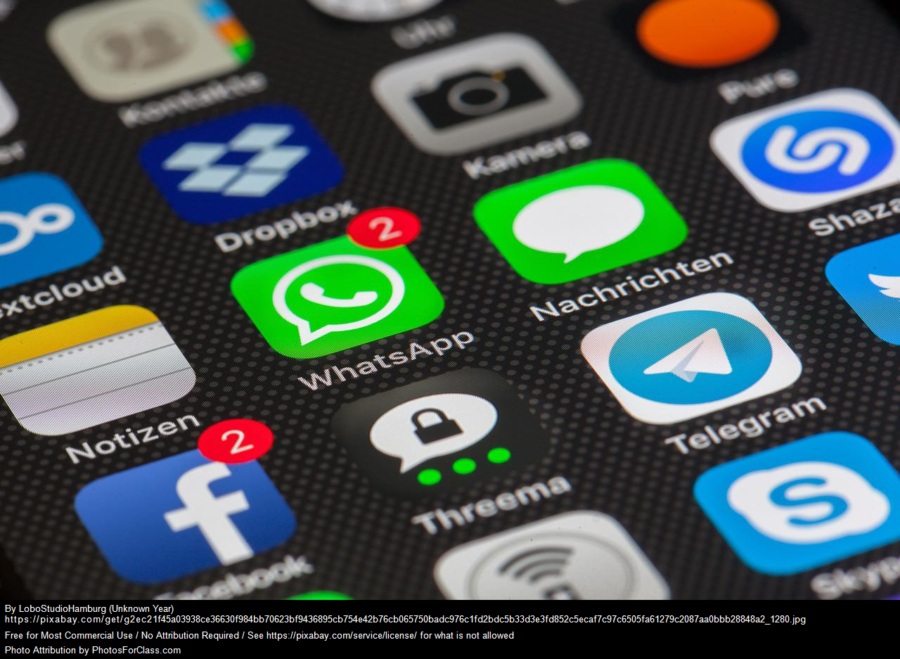Fear of Missing Out: FOMO
FOMO, just a social media hashtag or a real fear?
Introduction
FOMO, or fear of missing out, is defined by Psychology Today as, “a pervasive apprehension that others might be having rewarding experiences from which one is absent…characterized by the desire to stay continually connected with what others are doing…” A little while ago FOMO was not well known but recently there have been multiple studies done on it. This article aims to educate people about how FOMO is a real thing that significantly impacts some people’s lives. At the end there will be some suggestions about how people with FOMO can deal with it.
Yes, It’s Real and It Impacts Everyone
Some people think FOMO is not real. They think that others are just making it up and teenagers are just using it to get attention. Well, FOMO is real and it’s not just teenagers who get it. Everyone can be impacted by FOMO but younger people experience it more than older people. Surveys suggest that three-fourths of all young people experience FOMO. A part of the reason why FOMO impacts younger people more than older people could be because of the way younger people interact with social media and technology.
People Get FOMO in Different Amounts
It may seem surprising but people get FOMO in different amounts. A study has found that the degree of FOMO is dependent on a person’s boredom proneness. There are two scales that can help you find out if you have a lot or a little FOMO. The most in depth of those scales has 10 statements and you give yourself a 1-5 rating, 1 being this is 100% not true for me and 5 being this is absolutely true for me. Psychology Today says that those ten statements are, “1. I fear others have more rewarding experiences than me. 2. I fear my friends have more rewarding experiences than me. 3. I get worried when I find out my friends are having fun without me. 4. I get anxious when I don’t know what my friends are up to. 5. It is important that I understand my friends’ “in-jokes.” 6. Sometimes, I wonder if I spend too much time keeping up with what is going on. 7. It bothers me when I miss an opportunity to meet up with friends. 8. When I have a good time, it is important for me to share the details online (e.g. updating status). 9. When I miss out on a planned get-together, it bothers me. 10. When I go on vacation, I continue to keep tabs on what my friends are doing.”
FOMO Is Not Usually Good
For most of the population FOMO has a negative impact on their mood and life satisfaction. People struggling with a high amount of FOMO are prone to lower overall mood, reduced self-esteem, and feelings of loneliness and inferiority. This can become a cycle where more depression means more FOMO. FOMO isn’t just bad for your mental health either, increased depression can eventually make you have physical health problems. On top of all that, your mindfulness can be influenced as well. Mindfulness is most often defined as a state of mind achieved when one focuses their thoughts on the present while composedly recognizing and accepting one’s feelings, thoughts, and bodily sensations. Usually someone with a high amount of mindfulness is better in social scenarios as they are less prone to social anxiety, they also tend to have greater cognitive flexibility. FOMO can lead to a decrease in mindfulness, a higher amount of anxiety, and it can make you more likely to check social media. FOMO can also make you have unsafe driving behaviors such as texting while driving.
Managing FOMO
Some people don’t know how they can manage FOMO so I’m putting in a section that will tell you some tips on how you can manage FOMO. One thing you can do is savor the feeling of being away from social media. I know it sounds crazy, especially if you have FOMO as your entire fear is being out of the loop, but try it. Acknowledge that you are missing out on things and be okay with that. In fact, try to enjoy doing things on your own. Another thing you can try is taking a break from social media. Set an amount of time for yourself and try to go that long without social media. If those tips aren’t working for you you can try to use certain software to limit yourself. You can use apps like Space (for Android users) and RescueTime (for Windows) to limit yourself. If you need something else you can use browser extensions like Website Blocker and WasteNoTime. If you need something more extreme then you can delete your social media.
Conclusion
As you know FOMO is real and some people are negatively affected by it. I included tips in the hope that they help you manage your FOMO. If anyone you know is struggling with FOMO please suggest some of the tips I mentioned above to them.
Citation List:
“Getting over Fomo, the Fear of Missing Out.” Nir and Far, 12 Apr. 2022, https://www.nirandfar.com/fomo/.
Travers, Mark. “Four Facts about Fomo.” Psychology Today, Sussex Publishers, https://www.psychologytoday.com/intl/blog/social-instincts/202003/four-facts-about-fomo.
Vitelli, Romeo. “The FOMO Health Factor.” Psychology Today, Sussex Publishers, https://www.psychologytoday.com/us/blog/media-spotlight/201611/the-fomo-health-factor.

My name is Sicily and I am a writer for the Bulldog Brief. I really love reading. I love reading so much, in fact, that because of the amount of books...






Sanvi Vishnum ¦ Jun 17, 2022 at 3:15 pm
interesting i just learned abt it after reading this.
Debbie ¦ May 13, 2022 at 4:39 pm
This is an excellent subject matter to discuss. You did a great job. Thanks for bringing this subject up so that readers can understand and perhaps learn how to deal with it.
adviser ¦ May 6, 2022 at 9:19 am
Are we willing to admit when we feel left out? So tough!